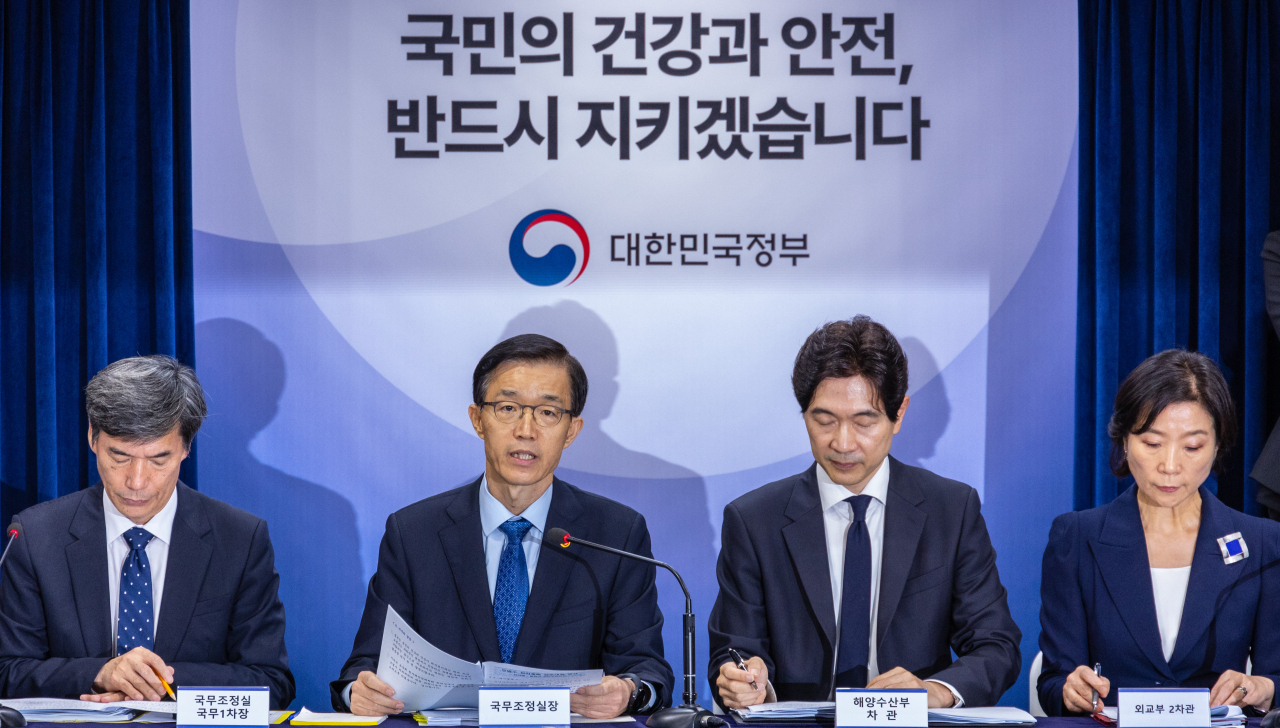 |
Government Policy Coordination Minister Bang Moon-kyu (2nd from left) speaks during a daily briefing on the Fukushima issue at the government complex in Seoul on Friday. (Yonhap) |
South Korean inquiry found Japan’s plan to discharge treated wastewater from the tsunami-wrecked Fukushima nuclear power plant to be “consistent with international safety standards,” the government announced Friday.
Bang Moon-kyu, the government policy coordination minister, said the plan proposed by the Japanese government met international standards, including those of the International Atomic Energy Agency.
“If the plan is kept as outlined, no violation of safety standards is anticipated and a trace amount of the discharged water will get to waters about 100 kilometers southeast of Jeju Island,” he said.
As Fukushima lies on the eastern coast of Japan, it would be four to five years until the discharged water travels around the Pacific and gets to Korean waters, according to a simulation run by a government research institution, he said.
The concentration of tritium and other radioactive materials in the treated water was found to be consistent with international standards, he added.
Tests conducted jointly by the Nuclear Safety and Security Commission and the Ministry of Oceans found no significant fluctuations in the concentration of radioactive materials in the Korean sea waters after the 2011 nuclear disaster in Fukushima. No new types of radionuclides were detected, either.
The government findings were announced three days after IAEA, the United Nations nuclear watchdog, issued its final report on the Japanese plan after nearly two years of assessment. The agency said in the report it found the water discharge plan to be in line with safety standards, and that the impact on neighboring countries would be “negligible.”
Separately from the IAEA’s analysis, Korea has been carrying out its own safety review led by the Korea Institute of Nuclear Safety since August 2021.
Bang added that government will continue its monitoring and other safety review efforts during and after the water discharge.
The chief of the IAEA Rafael Grossi, who is currently in Japan, will be visiting Korea for three days from Friday. During his stay he will be meeting with Foreign Minister Park Jin and other senior government officials.







![[Today’s K-pop] Blackpink’s Jennie, Lisa invited to Coachella as solo acts](http://res.heraldm.com/phpwas/restmb_idxmake.php?idx=644&simg=/content/image/2024/11/21/20241121050099_0.jpg)